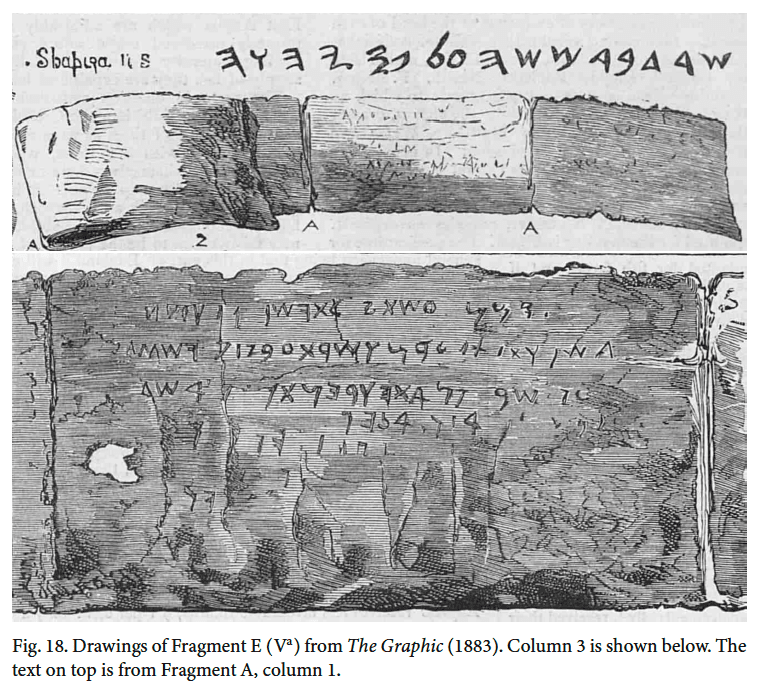Evangelical Bible scholar Ben Witherington has written a deeply interesting essay on the meaning of “God is love” for Biblical Archaeology’s “Bible History Daily” column.
After explaining the wrong assumptions many people make about the meaning of “love,” Witherington teaches us about the love of God in “What ‘God Is Love’ Actually Means“:
In 1 John 4, where God is called love not once but twice, God is
called agape, a very different word for love than eros. The verbal form
of the noun agape (agapao) is used to say God loves the world of
humanity in perhaps the most famous verse in the New Testament, John
3:16: “God loved the world in the following manner—he gave his only and
beloved Son so that whoever believes in him shall not perish but shall
have everlasting life” (author’s translation). There, we hear about a
self-sacrificial God.Clearly enough, the sort of love predicated of God is not any mere
human love, certainly not any sort of narcissistic self-directed love,
search for personal fulfillment, or expression of strong personal
desires. No, to say God “is love” is to say that God is the most
self-sacrificial being in the universe, and as such he was prepared to
go to incredible lengths to set humankind right. The writers of the New
Testament would clearly have nothing to do with any attempts to define
God on the basis of merely human notions of love or, worse still, define
love “as our god.” For Christians, God is the very definition of
self-sacrificial love and what it truly means. We should have long ago
stopped trying to define God and the divine character on our very
partial understandings of human love and human feelings.But there is much more to be said. This love described by the author
of 1 John 4 implies something fundamental about the freedom of God. Love
cannot be compelled, manipulated, or predetermined if it is to be
genuine love. It has to be freely given and freely received. God did not
have to love a world full of self-centered and sinful human beings, but
he chose to do this—and this accorded with God’s very nature. Even more
interesting and surprising is that 1 John 4 also tells us that God’s
love comes to its fullest expression not merely in creation, but in the
lives of his “beloved humans,” about whom it is said that God’s perfect
love casts out all fear of punishment, as well as other fears.In the Bible, indicative statements about God often become
imperatives for his people—“be holy as God is holy” (Leviticus 11:44),
for example. This is also true in regard to love. “We love (agapomen),”
says the writer, “because he first loved (egapesen) us” (1 John 4:19).
But our response is also free. We are to freely obey the great
commandment to love God with all that we are and to love our neighbor as
ourselves.Yet just because the response is free, doesn’t mean it is optional.
No, for Christians it is required. And the specific kind of love that
Jesus, the author of 1 John, and the apostle Paul have in mind is a holy
love, a righteous love, and a merciful love, which we have received
from God and now in some measure are returning.It is, of course, true that in the great commandment, “You shall love
(agapeseis) the Lord your God with all your being” (Mark 12:30), the
writer is not referring to feelings. No one can command their own
feelings. You can’t get up in the morning and say, “I command myself to
have warm, mushy feelings all day.” Feelings come and go and are subject
to a million factors—circumstances, personality, health, and so on. The
commandment to love God has little to do with that. It has to do with
self-sacrificially loving God and others just as we have been loved by
God.It was Jesus himself who once said, “Greater love (agape) has no one,
than he lay down his life for his friends” (John 15:13), and Jesus
himself was to do this very thing on Good Friday. There, paradoxically,
is the place we see most clearly both God’s great love for us all and
his holiness as well. Not love without holiness and righteousness, but
not righteousness without love either. This is the character of God in
both the Old Testament and New Testament. And the final proof of that
comes once more in 1 John 4—for it is the person Jesus called Father,
the very God of the Old Testament, that is said to be love in that text.
I find that helpful and clear. The commandment to love God requires self-sacrifice, commitment, service, and action, all so perfectly illustrated in the loving ministry of the Son of God.
With that in mind, the closing words of an epistle from Mormon recorded in Moroni 7 in the Book of Mormon seem particularly relevant:
[46] Wherefore, my beloved brethren, if ye have not charity,
ye are nothing, for charity never faileth. Wherefore, cleave unto
charity, which is the greatest of all, for all things must fail —[47]
But charity is the pure love of Christ, and it endureth forever; and
whoso is found possessed of it at the last day, it shall be well with
him.[48] Wherefore, my beloved brethren, pray unto the
Father with all the energy of heart, that ye may be filled with this
love, which he hath bestowed upon all who are true followers of his Son,
Jesus Christ; that ye may become the sons of God; that when he shall
appear we shall be like him, for we shall see him as he is; that we may
have this hope; that we may be purified even as he is pure. Amen.
This divine love, the pure love of Jesus Christ, requires a miracle. It depends on grace. It is not something we just naturally pick up. It requires putting off the natural man and allowing God to transform us and give us this great gift. We can walk away from that gift and grace at any time. Indeed, we can shatter it and shatter our lives. But without it, without that miraculous expression of God’s mercy and Christ’s love and atonement, we are nothing. It’s worth seeking and pleading for with all the energy of our heart.











Great post, Jeff. Thanks.
EBU